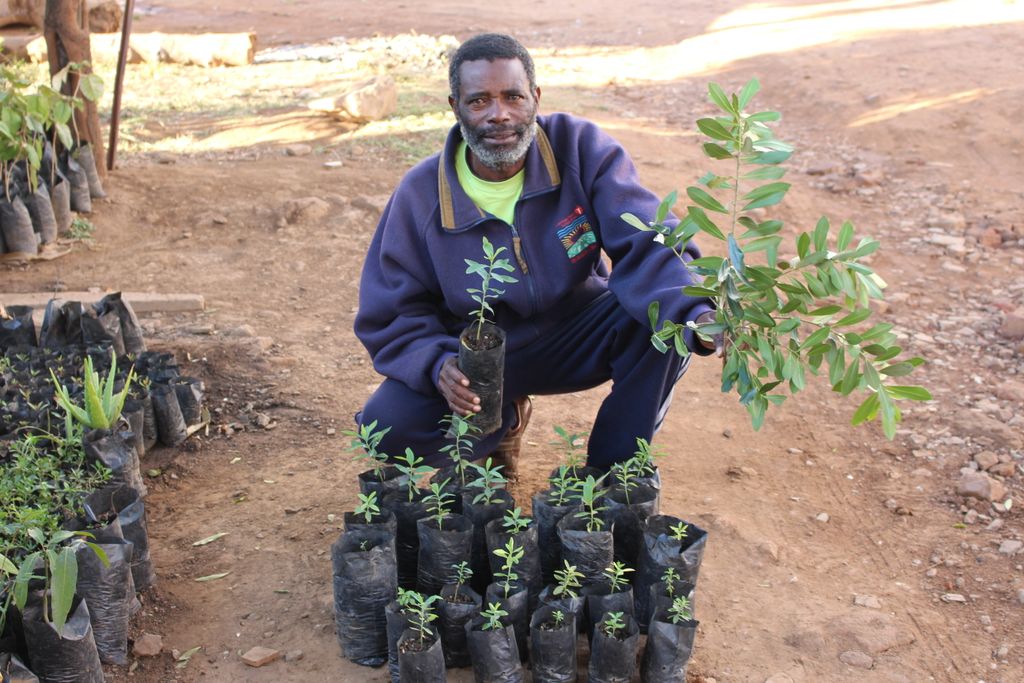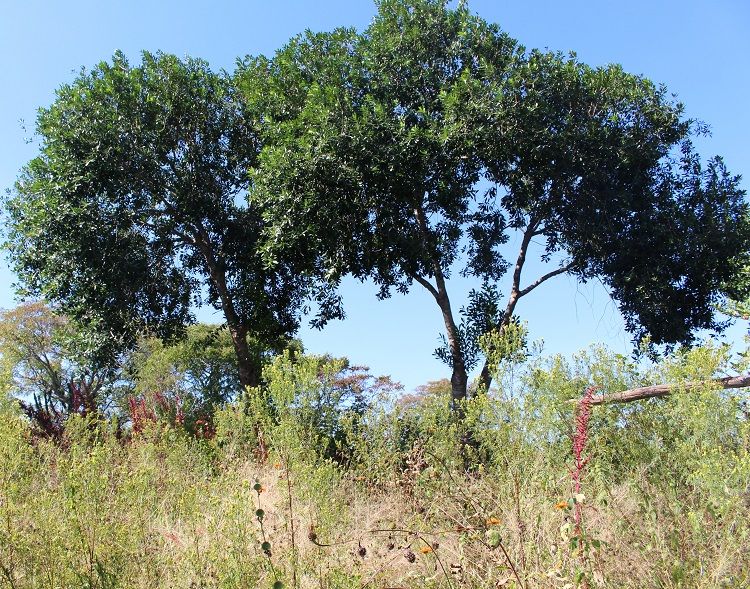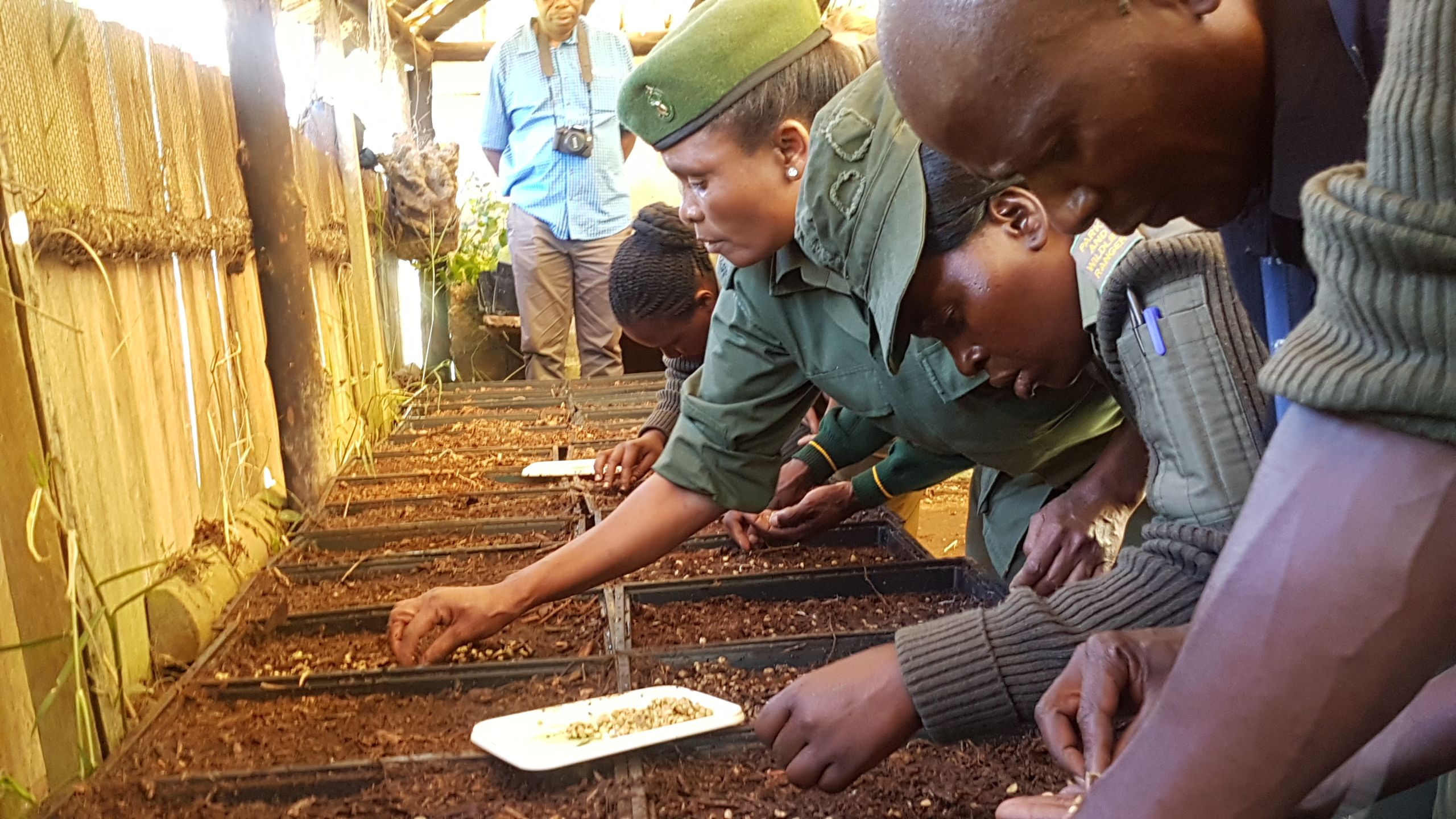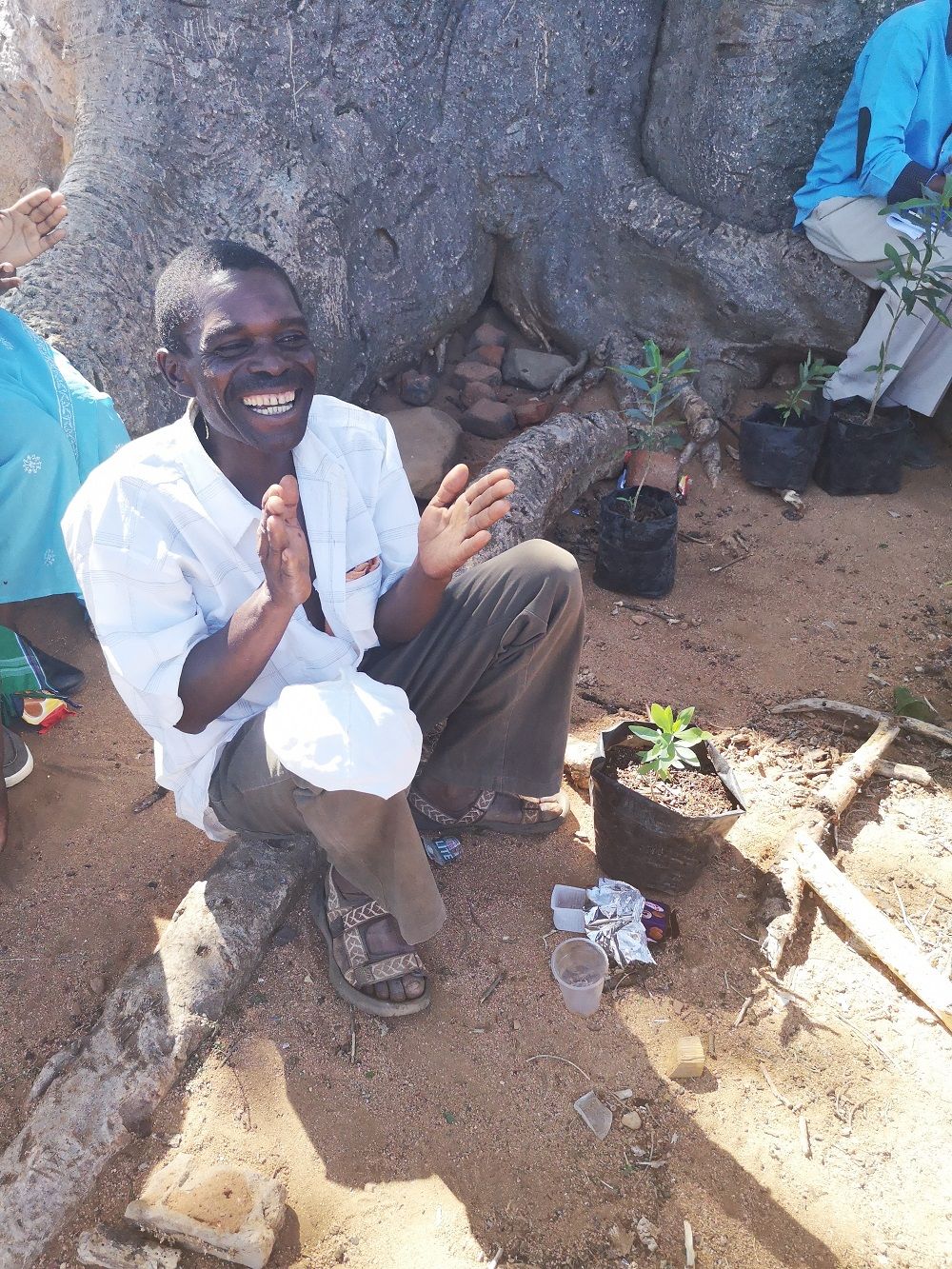Conserving the Pepper-bark tree in Zimbabwe

-
Status of project
Completed -
Region
Africa -
Country
Zimbabwe -
Topic
Tree Conservation
Endemic to the forests of Southern Africa (Mozambique, South Africa, Swaziland and Zimbabwe), the Pepper-bark tree (Warburgia salutaris) is considered Endangered at the global level according to the IUCN Red List.
In 2008, it was listed as Extinct in the Wild in Zimbabwe. This is primarily due to over-collection for its much sought-after bark, stems and leaves (used to treat a variety of different medical conditions), and habitat degradation resulting from the expansion of agriculture and human settlements. However, the tree still survives in a limited number of private gardens in Zimbabwe.
Reintroduction of the Pepper-bark tree in the wild is successful in Zimbabwe, and local communities have the skills required to cultivate it in home gardens, reducing the need to harvest wild trees for its medicinal properties.

Warburgia salutaris in a home garden in Zimbabwe

Vumba Botanical Gardens staff planting W. salutaris seed at their nursery

Distributing Warburgia salutaris saplings to local community members
Key activities include:
- Determining the genetic diversity present within Zimbabwean and South African W. salutaris
- Running a training course on how to cultivate Warburgia salutaris at Vumba Botanical Gardens
- Growing W. salutaris seedlings at Vumba Botanical Gardens to be distributed to local healers in the Mutema Highlands (W. salutaris historical range) and to be used for reintroduction in its natural habitat in the future
- Holding a workshop with community members in the Mutema Highlands to raise awareness of the conservation status of W. salutaris, sustainable harvesting techniques and the aims of the project
During a trip to collect DNA samples from Zimbabwean private gardens it was discovered that a former National Botanic Gardens Harare employee Mr. Duri, is growing a Pepper-bark tree of Zimbabwean origin in his garden. Remarkably this tree is producing seed (the only known Pepper-bark tree in Zimbabwe to do so) and Mr. Duri has used the seed to propagate 24 saplings. A number of these saplings have been distributed to local community members in the Tanganda Halt through this project, alongside training on how to cultivate and sustainably harvest the species. The remaining individuals will be used for future reintroduction activities.
No significant genetic difference was found between Zimbabwean and South African W. salutaris populations. As a result, it was decided that South African W. salutaris seed (which can be sourced sustainably) should be used to grow a larger supply of W. salutaris which can then be distributed to more community members in the Tanganda Halt. Approximately 5,000 seeds were planted at Vumba Botanical Gardens in November 2018.